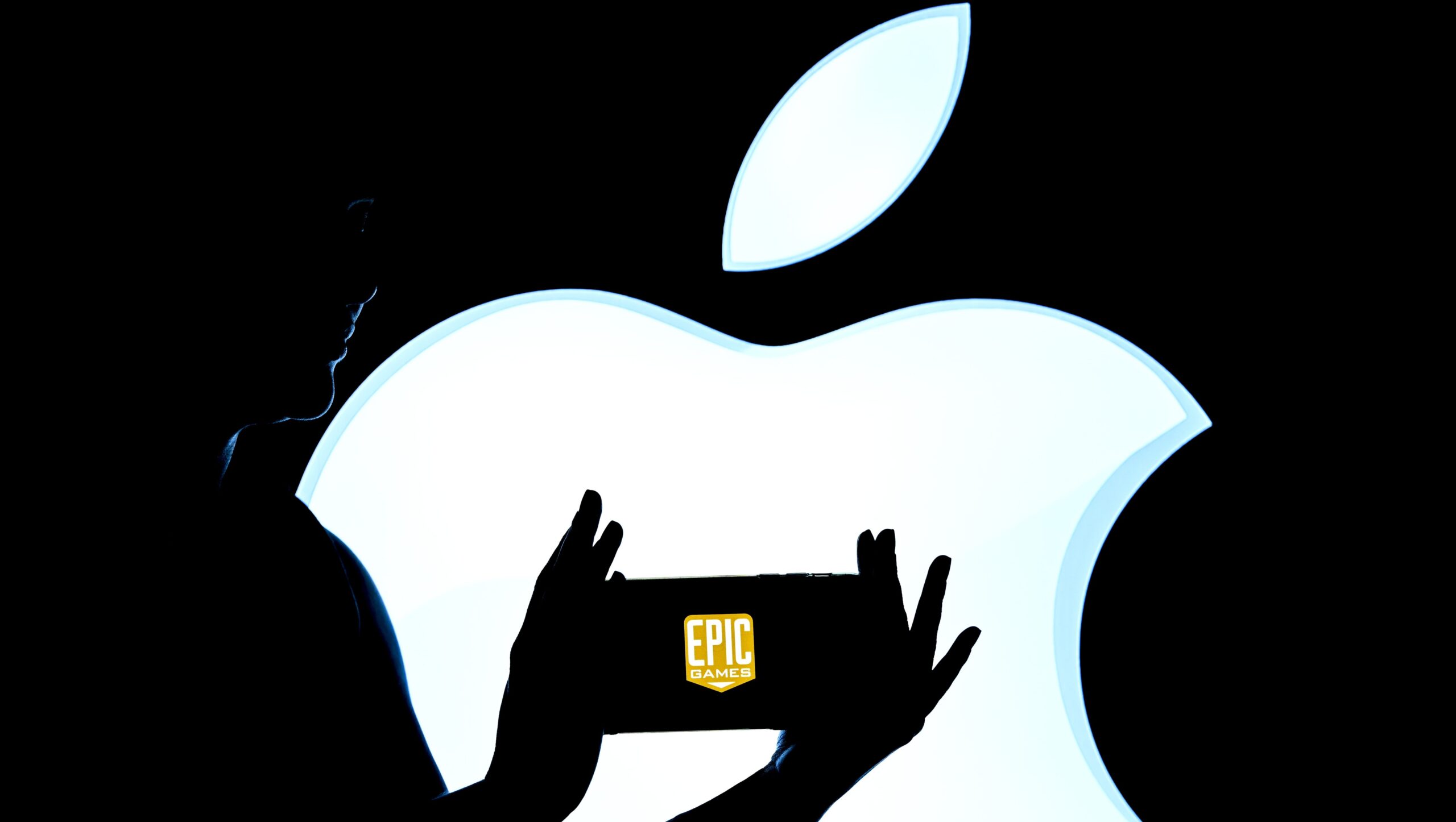Epic boss Tim Sweeney has spent quite a lot of money fighting Apple and Google over the way they run their app stores. How much? Billions of dollars. That, you’d think, would be unsustainable for most companies. But for Sweeney it’s an investment — a long term investment.
Sweeney’s ongoing battle to get Fortnite back on iPhones and Android phones while avoiding paying store fees is well-documented. The gist is this: Epic doesn’t want to pay the now standard 30% store fees on revenue made on mobile games. Instead, it wants to run the likes of Fortnite through its own mobile store, the Epic Games Store, without Apple and Google getting in the way and gobbling up its profit. Back in 2020, this dispute ended up with Fortnite blocked from release on iOS. In the U.S., nearly five years later, it is yet to return.
After multiple costly legal battles Epic is making some progress, mostly in Europe due to the Digital Markets Act, but hardly in the U.S., where there isn’t even a whiff of a legislation that would support Epic’s cause. In August last year, the Epic Games Store launched on iPhones in the European Union and on Android devices worldwide with Fortnite, Rocket League Sideswipe, and Fall Guys for mobile. But actually getting the likes of Fortnite up and running on mobile is a nightmare, with various “scare screens” putting up to 50% of users off, according to Epic.
Today, Epic is taking the next step and launching third-party games on the Epic Games Store on mobile with the same 88/12 revenue share for payments it processes and 0% on third-party payments. Nearly 20 third-party games are now available on the Epic Games Store on mobile (19 new games on Android globally and 16 new games on iOS in the European Union). As part of a new free games program, Bloons TD 6 and Dungeon of the Endless: Apogee are free to download until February 20. To start, there will be new games offered each month until Epic moves to a weekly schedule later this year.
But this third-party mobile game push comes with a heavy financial cost. To encourage developers to release their games on the Epic Games Store, Epic is footing the bill for Apple’s controversial Core Technology Fee (CTF). The CTF, which Epic calls “illegal,” would otherwise make releasing video games on the Epic Games Store on iOS financially unviable, Epic said.
So far, Epic has found none of the top 100 highest-grossing mobile game developers are willing to make the jump to the Epic Games Store because of the CTF and Apple and Google’s “onerous restrictions and scare screens.” Epic says it can’t pay the CTF for developers in the long term, but it’s willing to do so while the European Commission investigates what it calls Apple’s “non-compliance” with the law.
Speaking to outlets including IGN ahead of today’s announcement, Sweeney said Epic had invested over $1 billion in the Epic Games Store so far. Sweeney also said Epic has been spending more money than it’s making every year “because we choose to reinvest in growth.” And it’s pumping “the greater part” of $1 billion a year trying to expand its business into mobile — including its fight with Apple and Google.
Throughout the spending, Epic has suffered significant layoffs. In September 2023, the North Carolina studio saw 830 employees, or about 16% of its workforce, lose their jobs. In October last year, Sweeney insisted the company was now “financially sound,” with Fortnite and the Epic Games Store both hitting new records in “concurrency and success.”
What is the endgame here? How long can Epic keep this huge spending up? Fortnite with its high-profile events and premium skins continues to bring in billions of dollars, and Epic of course has its lucrative Unreal Engine business fueling the video game industry. But for how much longer can Epic justify burning through billions in this seemingly endless fight?
IGN put that to Tim Sweeney, and here’s what he had to say in response:
“Yeah, I think we might run into serious financial problems after a couple more decades of this. But we’re determined to fight this out. I expect large parts of this struggle will go on throughout the rest of this decade and we’re fully committed to going through it and investing to break through.
“We’re seeing this as an investment in Epic’s future, both our future directly as a game developer ourselves, we see a much greater opportunity for Fortnite as a business if the market is open and competition is allowed on iOS, on an Android, and these big tech companies and their junk fees aren’t crushing market entrances.
“But we also see opportunity for all developers. And because we have businesses serving all developers, the Unreal Engine and the Epic Games Store, our online services, we see an opening up of the market as offering a real breakout opportunity for Epic as a game company and an ecosystem company.
“And if you look at Epic’s history, we’ve always aimed big and we’ve always grown prudently. Our first big 3D game in the era of Doom and Quake was the first Unreal game in 1998. And that sold two million copies. It was pretty cool! And we made Gears of War and expanded to console, and that sold six million copies. And we decided to become an online game developer, and it took years to figure out how to do that, with years without growth. But we figured it out eventually with Fortnite in 2017 and now we’re a company with billions of dollars of revenue a year and thousands of employees and an opportunity of the sort that we’ve never had before. And I do not see this as last phase of Epic’s growth and opportunity, if we’re successful in what we’re trying to do and building online gaming into a much bigger, more social and connected world.
“Some people call it the Metaverse and some people call it just games, but it is real. And you find hundreds of millions of players who are highly engaged in immersive 3D games together with their friends. And we think that if we are successful with this, then someday there will be billions of users of this kind of game. And we think we’re in an awesome position to be a leading company or perhaps the leading company in that world if the shackles are removed that prevent us and all developers from actually competing on our own and becoming first class companies in the industry.
“And if you back up and you look at the big tech landscape, not a single trillion dollar company anywhere in the world is a vassal in another company’s ecosystem. You’re either a company that has a direct relationship with customers and freedom to do business with them directly, or you’re behind Apple and Google’s paywall and you do not have that chance and you cannot grow and most of the profit your business produces will go to Apple and Google who will use it for fuck all… share buybacks and dividends rather than investment in hiring and innovating and building technology and making the world a better place.”
What Sweeney is essentially saying here is that Epic will keep fighting Apple and Google for decades to come if it has to, continuing to spend billions because it believes that if it wins, it will make many billions more in the long term. There is a huge amount of money at stake here, and Sweeney sounds determined to see it through. IGN has asked Apple for comment.
But it’s not just about how much money Epic has already spent, it’s about how much money it might have made had it bowed to Apple’s store fees, coughed up that 30%, and had Fortnite on iOS for the last five years.
IGN asked Sweeney if Epic had calculated this missed opportunity, and here’s what he had to say:
“Yeah, this is something we think about a lot and it’s always hard to predict because there’s just a direct number of users, percentage of users we had on iOS before and that could have continued, but we could have also potentially driven significant new forms of growth on mobile as new opportunities opened up in new markets where they were more mobile than PC and console.
“The fight against Apple and Google has certainly denied us a billion dollars of revenue, perhaps several billion, and we certainly could have been a higher revenue vassal to Cupertino had we stayed on the App Store and paid Apple’s junk fees forever. But I felt very firmly that the proper way to challenge them was to demonstrate to the world the real effects of their policies because Apple… Apple does a good job of hiding it. They don’t let developers tell users that they’re paying 30% of their fee for nothing or their purchase price is going to Apple for nothing, and it’s not widely known.
“And so this was largely a supply side dispute between developers and the platform ecosystems. The moment Apple blocked Fortnite, it became about access and about denial of access to markets and about monopoly abuse to further the company’s economic objectives. And the moment Apple banned Fortnite, the conversation in the world changed and everybody realized that these companies aren’t just some part of the supply chain that takes a cut. They are the sole viable distribution vehicle for platforms reaching billions of users.
“And around that time regulatory activity perked up and became serious and has come into force through a number of laws that have really begun to shake up the market. We view our company’s aims on the scale of decades. We’ve been in business for 33 years now, which is a pretty long time for a tech company, especially a game developer. There were a lot of game developers in 1991, not many of them are around now.
“But we think our best days are ahead and we think our best days can only be achieved when we have true freedom and we believe the best way to get to that freedom is to go all in and fighting for access rather than arguing about money as Apple is trying to encourage all other developers to do.
“And so I have no regrets and I think that in the long run, we’ll look back at the event in August 13th, 2020 when we opened up Fortnite and supported direct payment and gave customers savings by purchasing directly and avoiding Apple junk fees, that whole series of events I think will be the thing that instigated the change that is absolutely necessary for the future.
“Do you want your kids to grow up in a market where Apple and Google extract all the profit from all digital businesses and control access to all the information? It’s not a good world, just like FYI. So no regrets, though it’s been terribly costly. We’re really looking at our future opportunity and future value rather than the opportunity that we missed by fighting Apple and Google this way.”
The upshot is this: Epic is working with regulators in the European Union to stop Apple and Google from allegedly breaking the law (it wants both to comply with the Digital Markets Act and enable proper access to the Epic Games Store and its games), and it plans to bring the Epic Games Store to iOS in the UK and Japan at the end of this year.
But what about the U.S.? When will Fortnite finally return to iPhone in the country? “Once policymakers and courts in other countries like Brazil, Australia, Korea and the United States make it possible, we’ll bring the Epic Games Store to iOS in those countries too,” Epic said. “We will keep fighting to break down barriers not just for the Epic Games Store, but for everyone.”
Photo by Arda Kucukkaya/Anadolu Agency via Getty Images.
Wesley is the UK News Editor for IGN. Find him on Twitter at @wyp100. You can reach Wesley at wesley_yinpoole@ign.com or confidentially at wyp100@proton.me.












